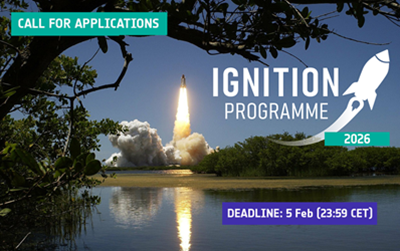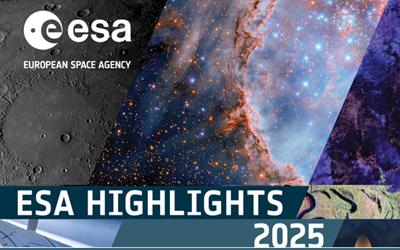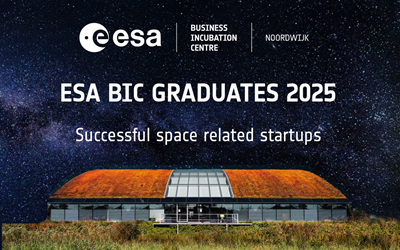Applications of space in healthcare are nothing short of revolutionary. From monitoring the spread of diseases with satellites to conducting experiments in microgravity for the development of new medical technologies. HDES (High Density Energy Storage) is well aware of the potential of space to innovate the medical sector. Since 2018, the company develops cool gas generators for space and terrestrial applications, further advancing this technology during incubation at ESA BIC Noordwijk. With its proposal for a lightweight oxygen supply for general practitioners, HDES won the technology transfer competition of the ESA Technology Broker NL in December 2022 and is now ready to go-to-market.
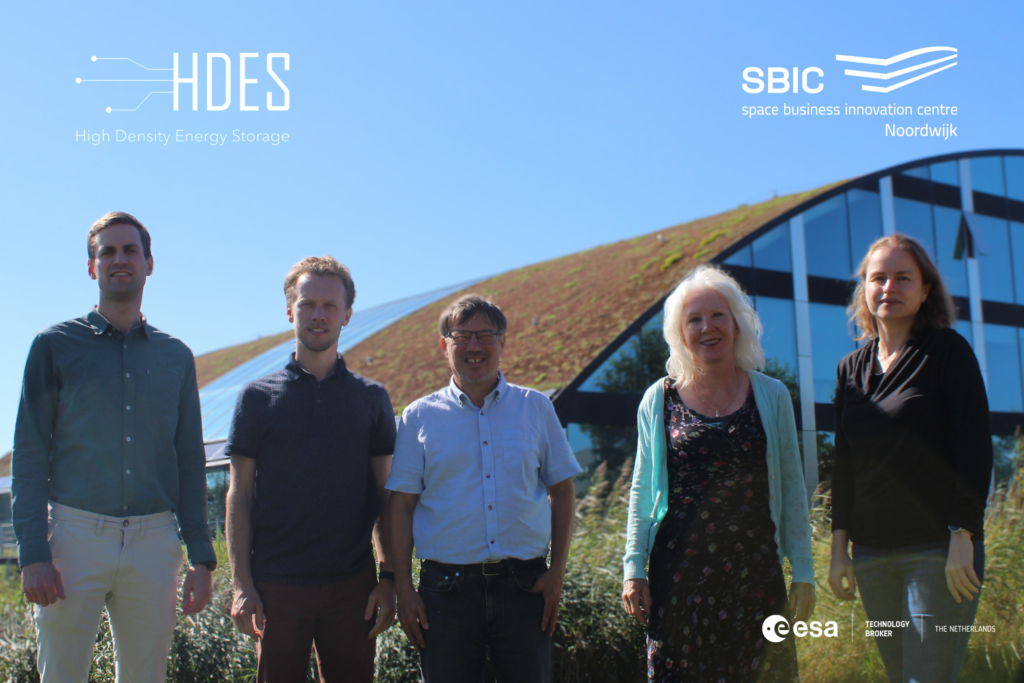
(Left to right: Sigurd Ravnan, Toby Sap, Berry Sanders, Els veenhoven, Armanda Hogedoorn)
Nitrogen gas generators for satellite propulsion
The cool gas generator is a gas storage technology that was originally developed for space applications by TNO (the Netherlands Organisation for Applied Scientific Research). The technology consists of a casing with a solid block inside that can be decomposed into gas upon activation of a small igniter. When activated, gas is released which can be used for propulsion and inflation of space structures, as well as for the manoeuvring of small satellites.
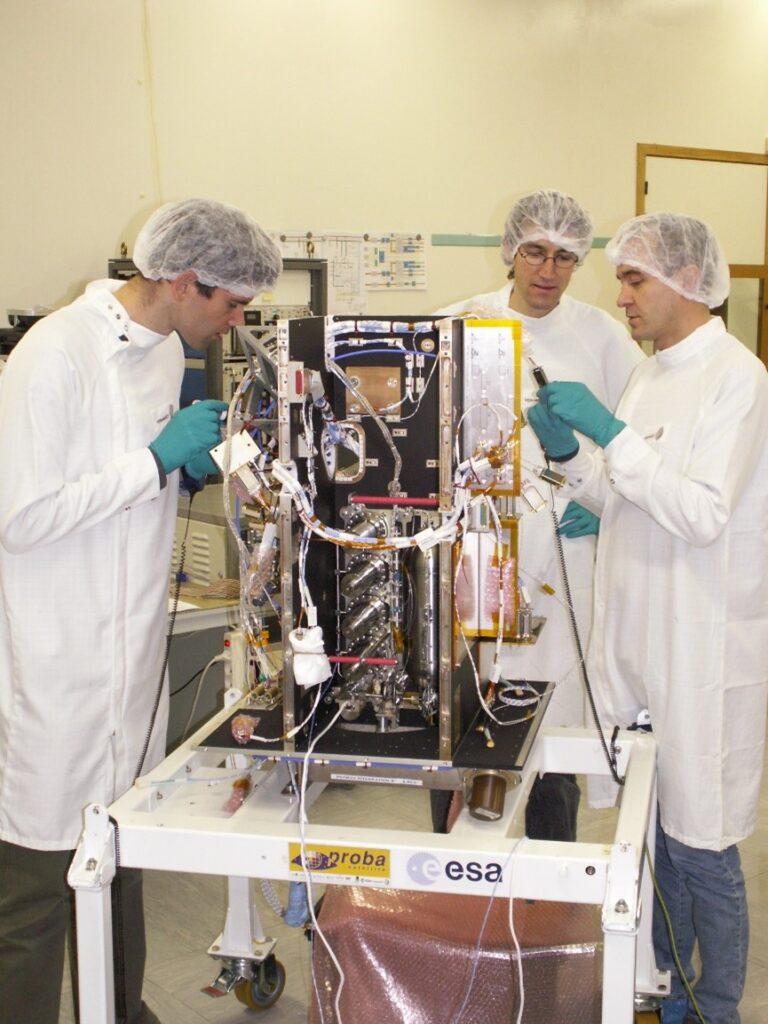
Cool gas generators were used on multiple space missions. In 2009, the Cool Gas Generator Experiment was launched on board ESA’s Proba-2 satellite. The initial experiment, consisting of four cool gas generators each producing 40 litres of nitrogen gas, aimed to demonstrate the technology in space. Three gas generators were fired in 2011, 2012 and 2016, all with success. Since 2018, the experiment has been managed by HDES – data is collected weekly and regular reports are published. In 2021 the remaining generator in this experimental propulsion system was then assigned to be used for Collision Avoidance Manoeuvres by ESA. It is now an operational part of Proba-2 and will be used to manoeuvre the satellite out of the way when a piece of debris comes too close. This use makes the cool gas generator mission critical equipment.
Oxygen and carbon dioxide gas generators for terrestrial applications
Following confirmation that nitrogen gas generators could be used in space, the HDES team began investigating other gases for the generators. The aim was to apply this technology to help to save lives on Earth. In 2019, HDES joined the incubation programme at ESA BIC Noordwijk and set up a pilot production facility for the development of carbon dioxide and oxygen cool gas generators. Compared to their nitrogen counterpart, both types of generators are cheaper to produce and non-toxic.
Since graduating from ESA BIC in 2021 and following the production of numerous prototypes, HDES progressed and made good advances in the field. The carbon dioxide generators can be used for safety applications, such as inflatable life jackets – that still need to work years after their initial production – or to activate the landing gear of an aircraft in case of emergency. In recent years, HDES conducted a successful product development of a space carbon dioxide cool gas generator (together with partners Bradford Engineering and TNO) as part of the SBIR programme of the Netherlands Space Office. It now means the carbon dioxide cool gas generators are space-qualified, which provides a safer and non-toxic option for space applications such as for inflatable structures.
For the oxygen cool gas generators, the company is working on the development of emergency oxygen supplies for aircraft and ambulances, as well as military applications. To ensure easy use by patients and professionals of this application, HDES collaborated with Lencon to design a suitable housing which keeps the outside part of the generator cool enough to be held by hand. These developments formed the basis for a prototype of an oxygen cool gas generator for general practitioners, which turned into an award-winning idea.
Oxygen generator for doctors – innovative, life-saving application
At the end of 2022, the ESA Technology Broker NL – jointly operated by SBIC Noordwijk and NL Space Campus – held a technology transfer competition for ideas on how space technologies can be used in applications to solve real-world problems. HDES came out on top with a proposal of an easy-to-use and lightweight oxygen supply for general practitioners and doctors working in the field.
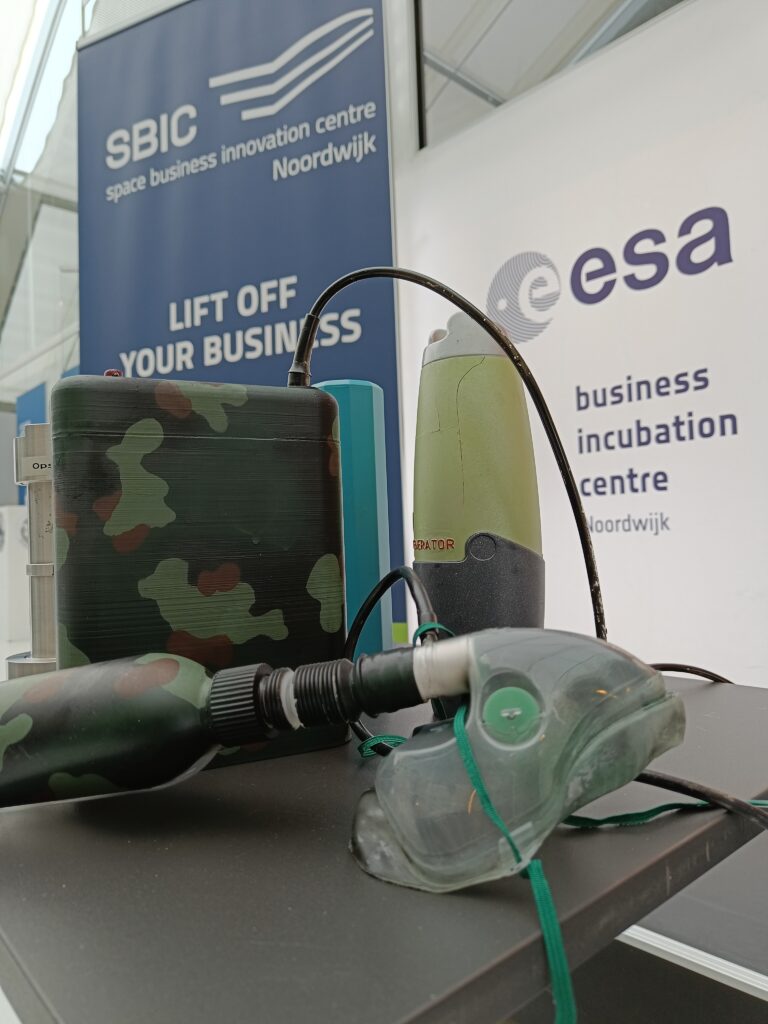
Currently, most general practitioners do not carry oxygen supplies because existing systems are too bulky and are either pressurised or need external electrical power. Being much smaller and lighter than conventional gas storage systems, the oxygen cool gas generators produced by HDES might change that. The generators are easy to carry around and produce oxygen at room temperature, ready to be breathed directly by the patient. Furthermore, cool gas generators have proven to work after a long time without any maintenance. Their reliability and unique design makes them well suited for rescue and safety systems.
First prize of the ESA Technology Transfer Competition
The project really took off with the selection of HDES as the winner of the ESA Technology Transfer competition by ESA and the Dutch ESA Technology Broker NL. With about 12,000 general practitioners in the Netherlands, and a possibility for expansion into Europe and beyond, the market looks promising. One of those potential users was part of the proposal. In the run-up to the competition, HDES teamed up with general practitioner Ferry Janssen about the current needs and key requirements for oxygen supply kits. Starting from the user needs paid off because the team went home with the first prize. With the prize money the team conducted further market research, defined the product in more detail and improved the business plan.
During the summer of 2023, the company is getting ready to go-to-market. A business plan has been written and talks have started with investors for a seed investment round. An important aspect that requires extra care in this type of technology transfer deals with the medical regulations that apply for oxygen that has to be inhaled. Together with AOW Consultancy, HDES worked on the medical aspects of the oxygen generator and set up a plan for the certification of the device.
HDES approach: “Going to the market with a radical new product can be challenging. In high-tech niche markets, like space, customers are willing to pay for the special features of the product. In these markets, products have a premium price and volumes are low while customers are prepared to pay for the development or at least contribute to it. Then once a product is proven in these niches, we enter other markets where larger numbers can be produced with lower prices. This step-by-step approach reduces risk and limits the investment needed for each step.” – CEO Berry Sanders explaining the company’s approach to technology transfer.
Promoting the use of space technology
HDES still has its base at SBIC Noordwijk and continues to be active in the space business hub. The team – consisting of founder and CEO Berry Sanders, together with CTO and early collaborator Armanda Hogedoorn and engineers Sigurd Ravnan, Els veenhoven and Toby Sap – makes regular use of the fab lab and workshop at SBIC and are regulars at every community event. In 2022, the company became an SBIC technical partner, providing support to startups currently taking part in the ESA BIC programme in the Netherlands.
The HDES team also likes to support the next generation of space engineers. The SBIC community regularly welcomes visits from different educational programmes. This year, students from the Delft University of Technology and the Erasmus University in Rotterdam worked on the market research and business case for the oxygen generator.
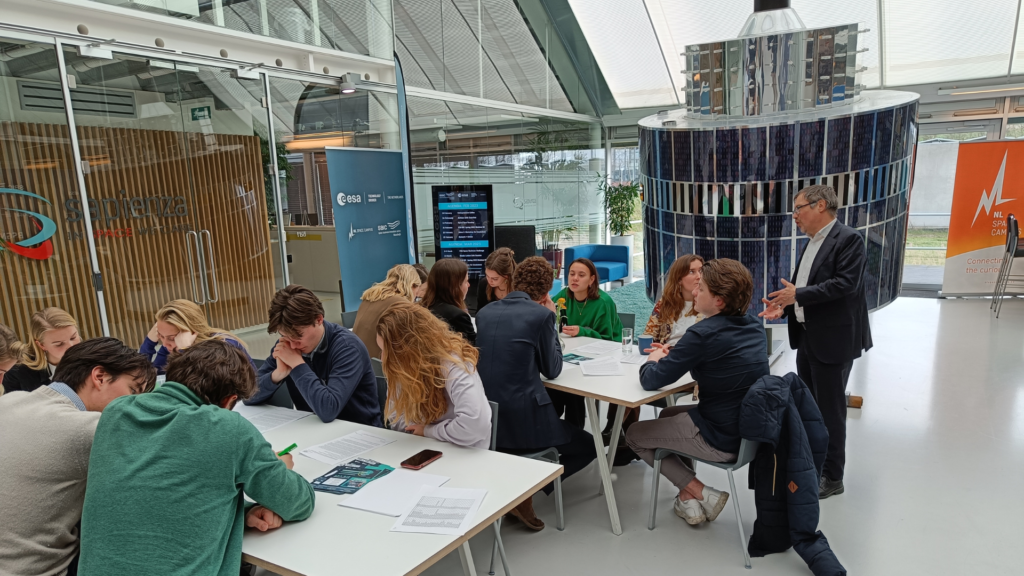
“As a proud SBIC technical and community partner, we are happy to promote the use of space technology. By taking part in student orientation programmes for students, we aim to give them an idea of responsible entrepreneurship,” comments Berry Sanders. “For us, these assignments are great to get an independent assessment of the work that we have been doing. Working with space technology and turning it into a life-saving product makes us all aware of the wider impact of the space sector.”
About HDES: High Density Energy Systems (HDES) Service & Engineering is a Dutch engineering and technology development company that designs, develops and manufactures cool gas generators for space, rescue and safety applications, and terrestrial projects. With headquarters in Noordwijk, HDES is an alumnus of the ESA Business Incubation Centre Noordwijk and a technical partner of SBIC Noordwijk providing technical support to current ESA BIC startups. hdes.nl
Related posts:
Oxygen unit for general practice wins top prize in ESA Technology Transfer Competition
HDES developing space-proven gas generators for safety applications on Earth
